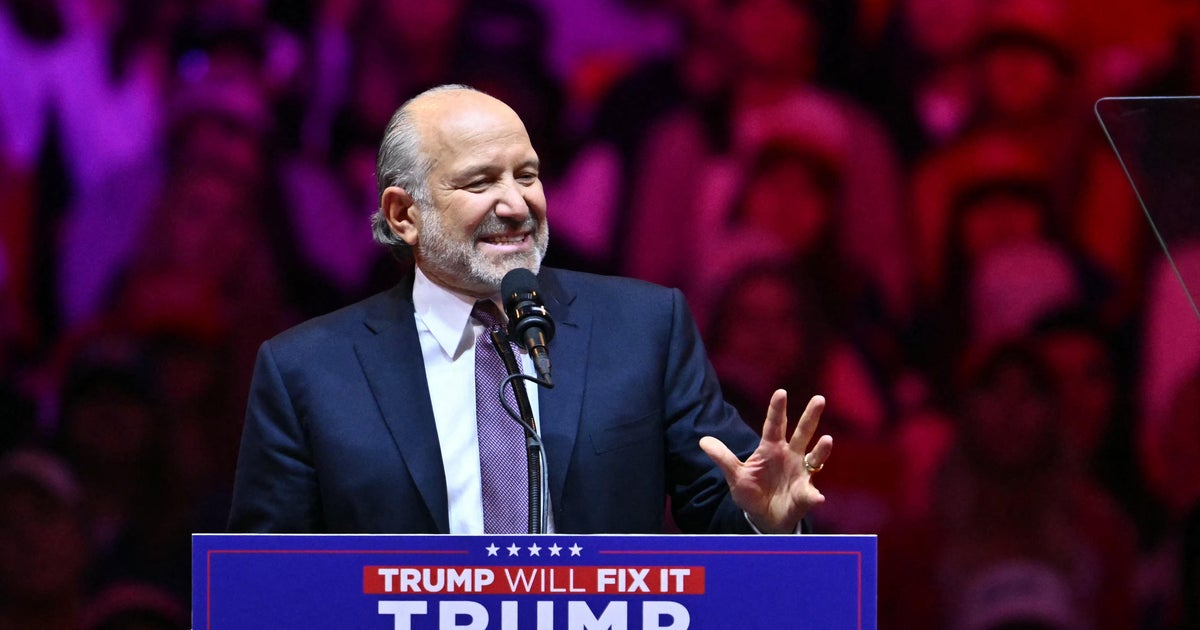16 states sue Trump administration over national emergency declaration
A coalition of attorneys general from 16 states sued the Trump administration Monday over President Trump's declaration of a national emergency to fund border security measures, calling the White House's unprecedented move "unlawful and unconstitutional."
The multi-state lawsuit, spearheaded by California Attorney General Xavier Becerra, an outspoken critic of the Trump administration, represents the first and most significant legal challenge to the president's controversial proclamation to date. Some Democratic lawmakers have also vowed to introduce legislation in Congress to terminate the White House's declaration.
"It's unfortunate that on Presidents Day, when we should be celebrating what our presidents have done for this country, that we're actually suing this president," Becerra told CBS News in an interview Monday night. "But that's important because we're trying to make sure that in the future we respect what our presidents do. And that our presidents respect [that] they too like every American must abide by the law. No one is above the law in this country."
The other states joining the lawsuit are Colorado, Connecticut, Delaware, Hawaii, Illinois, Maine, Maryland, Michigan, Minnesota, Nevada, New Jersey, New Mexico, New York, Oregon and Virginia.
Full lawsuit filed by the Attorney General of California
On Friday, after Congress approved spending legislation with only $1.375 billion in funding for 55 miles of physical barriers along the U.S.-Mexico border, the president declared a national emergency to access billions of dollars in additional funds to build a border wall. During the televised address, Mr. Trump correctly predicted that his administration would be sued, but he also said he expected a conservative-leaning Supreme Court to ultimately rule in his favor.
"We're going to confront the national security crisis on our southern border," Mr. Trump said. "And we're going to do it one way or the other."
The extraordinary move allows the White House to use $3.6 billion in military construction funds for the construction of a wall. Through a separate executive order signed Friday, the president will also be able to divert $2.5 billion from counternarcotics initiatives and $601 million from a Treasury Department forfeiture fund.
The president's decision to act unilaterally without legislative consent provoked widespread criticism from Democrats, who quickly introduced legislation to disapprove the national emergency proclamation. Even from some moderate Republicans criticized the move, including Maine Sen. Susan Collins, who accused Mr. Trump of "usurping congressional authority." Despite voicing concerns about the proclamation before Mr. Trump issued it, most rank-and-file Republicans and the House and Senate GOP leadership have expressed their support since Friday's announcement.
In his interview with CBS News shortly before the lawsuit was filed, Becerra accused congressional Republicans of being complicit in the president's attempt to "go beyond the structures of the Constitution."
"Republicans in Congress, most of them at least, are abrogating their own responsibility," he added. "This is their power that the president is usurping, the power of the purse, and yet they seem to be going along with the president."
Echoing remarks from several of his congressional colleagues, Will Hurd, the sole Republican representing a congressional district along the southern border, said on "Face the Nation" Sunday that the White House's move sets a "dangerous precedent."




